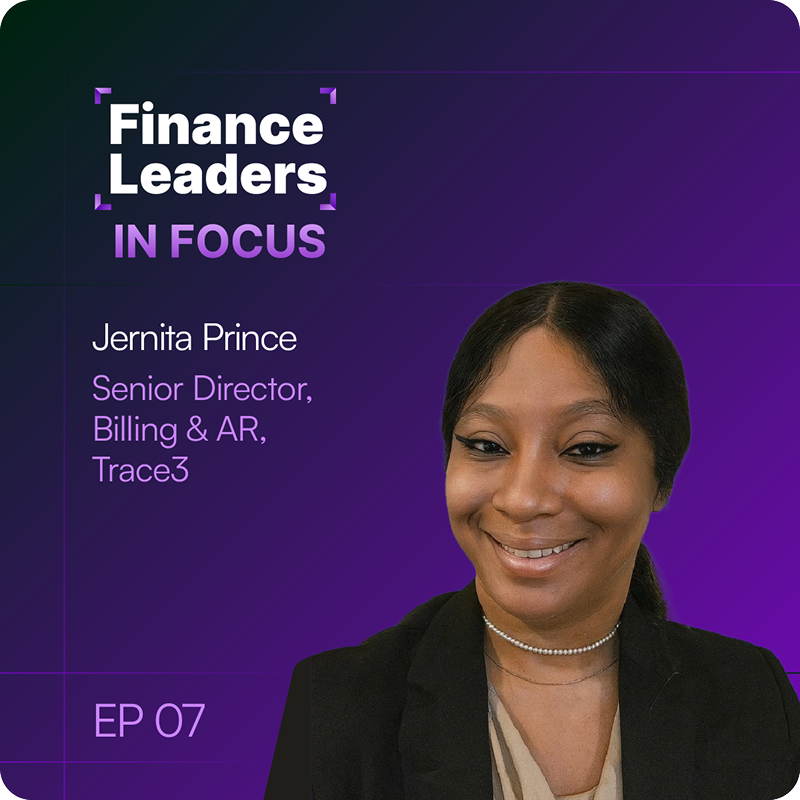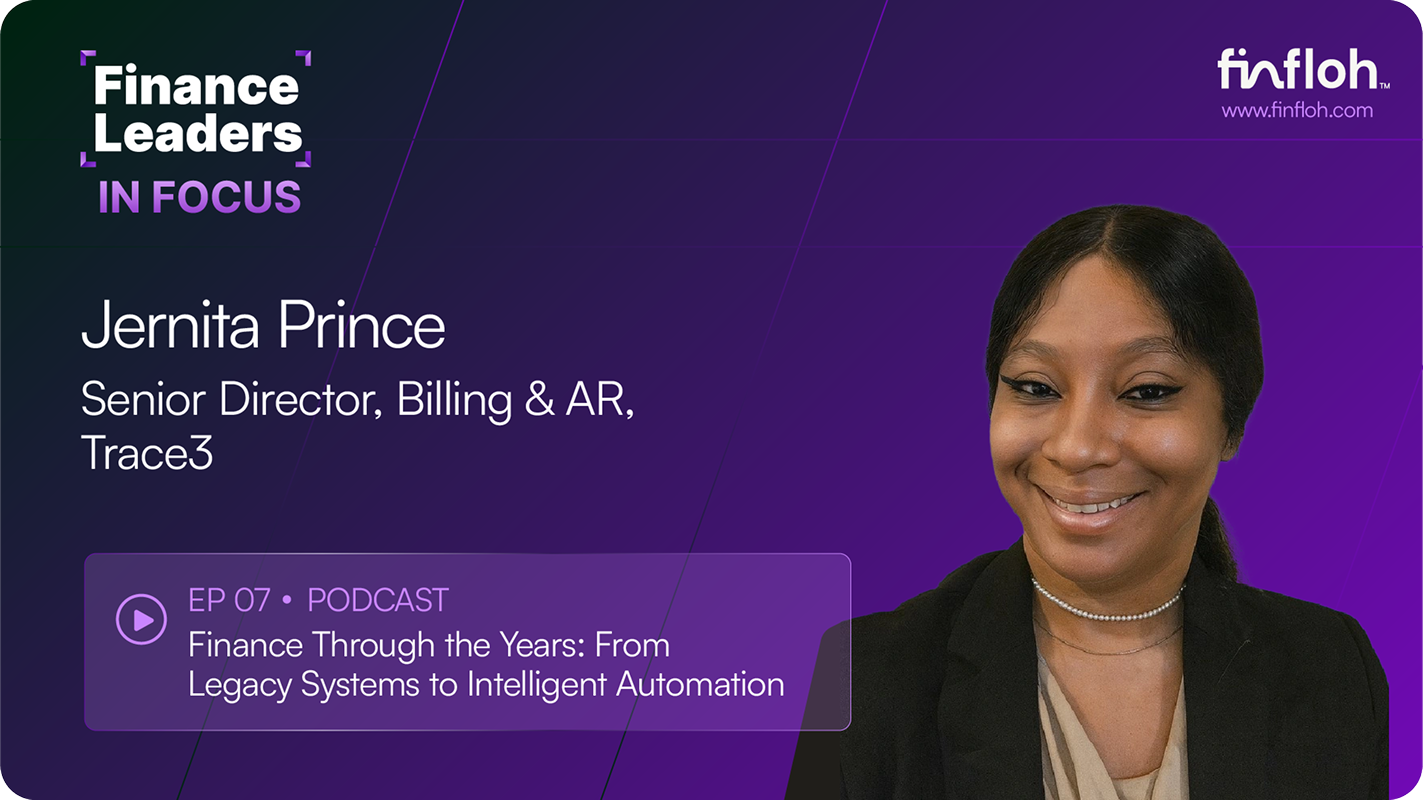The Future of Accounting from a CFO's POV
Chapters
Key Takeaways
- Key moments and turning points in Chris’s finance career
- How accounting has evolved over the past decade and where it’s headed
- Challenges in finance leadership during market shifts and strategies to tackle them
- The role of generative AI in accounting, from automation to quick insights
- Improving accounting software for better bookkeeping
- Advice for finance professionals to excel in a dynamic environment
Speakers

Guest Speaker
Chris McCourt
CFO, Bergmeyer

Hosted By
Amartya Singh
CEO & Cofounder, FinFloh
Episode Transcript
Amartya: Hello everyone. I'm your host, Amartya Singh, co-founder and CEO of FinFloh, a product built by and for modern finance teams. Welcome back to the seventh episode of our podcast, Inside the CFO Office, an exclusive channel where finance professionals can learn from the journeys of finance leaders and trailblazers in the CFO space.
In each episode, we explore the biggest challenges they’ve faced, the innovative solutions they’ve developed, and their vision for the future of finance. Today, we're thrilled to welcome Chris McCort to share his extensive experience in finance and strategic leadership. His career spans over two decades across industries like technology, advertising, and real estate.
Chris has earned a reputation as a trusted advisor and leader in the C-suite. Currently the Chief Financial Officer at Bergmayer, he has consistently driven operational excellence, financial strategy, and sustainable growth at firms like Digilant, VaultLogix, LocatePlus, and others. Personally, I’ve had insightful discussions with Chris about finance strategy, processes, teams, and, my favorite, finance technologies. I’m thrilled to have him here today to share his journey and advice. Welcome, Chris!
Amartya: Great to have you with us.
Chris: Thank you so much! I’m really happy to be here and looking forward to another great conversation with you.
Amartya: Let’s dive right in. Your career journey is fascinating—starting as a staff accountant and rising to the role of CFO. That must have been quite the experience, filled with challenges and milestones. Could you share the key moments or turning points that shaped your journey and your overall experience? What got you here?
Chris: Absolutely. In college, I was an accounting major and thought I’d spend my career working with numbers, balancing books, and preparing financial statements. I started in public accounting but quickly realized auditing other companies’ books wasn’t for me—it lacked the dynamic challenges I was seeking.
An old college roommate offered me a job at LocatePlus, where I started at the bottom, working on accounts payable entries and learning how to use ERP systems. That foundational experience was invaluable, giving me real-world insight into accounting beyond the classroom.
Later, at VaultLogix, I had my first mentor, Tom Spencer, the CFO. He taught me how to think strategically—how to step beyond the basics of accounting and view the business from a 30,000-foot perspective. He entrusted me with leading audits and managing a team, which was transformative for my growth.
Then, at Digilant, I worked under two brilliant mentors: David Graña, the Global CFO based in Spain, and Todd Hager, the CRO. They demonstrated what it means to act like an executive—how to lead meetings, build teams, and mentor effectively. Their guidance helped me transition from being an accountant to a leader and strategist.
Amartya: Got it.
Chris: Finally, my role at Bergmayer over the past 18 months has been incredible. It’s been an opportunity to apply everything I’ve learned to lead a finance team that needed organization and strategic direction. We’ve become trusted advisors within the company, contributing significantly to growth and decision-making.
Amartya: That’s impressive! I noticed a few recurring themes—mentorship being a key one. Good mentors provide both guidance and a broader perspective, helping you think beyond numbers and into strategic territory. I loved the phrase you used, "30,000-foot view." Strategy and vision are critical for a CFO. In your experience, how important is having a clear strategy and vision, and how have you implemented these in your roles?
Chris: It’s essential. You can develop a strategy in collaboration with your CEO and other executives, but execution depends on having a team that’s aligned with your goals. Communication is at the heart of this. If you can communicate your vision effectively, your chances of success increase dramatically.
Amartya: Communication—I agree. Now, challenges are inevitable in any finance career. Out of all the obstacles you’ve faced, what are the top two challenges that stand out? How did you approach and overcome them?
Chris: Great question. The first challenge was stepping away from the technical accounting work to focus on strategic leadership. As a CFO, you must think about the entire business, not just debits and credits. That shift was a learning curve.
The second challenge was learning to manage people. You can’t do it all yourself—you need to trust your team. Managing effectively requires regular communication, clear expectations, and creating an environment where everyone is moving in the same direction.
Amartya: Absolutely. Managing people comes with its own complexities, especially when working across industries and with diverse teams. Can you share examples of how you handled these dynamics?
Chris: It’s tricky because people communicate and learn differently. Building trust is key. You spend a significant portion of your life with your colleagues, so balancing friendship with leadership is important. I’m firm about setting expectations, but I also avoid micromanaging—we’re all professionals. Clear communication is the cornerstone of effective management.
Amartya: That makes sense. You’ve also mentioned working hands-on with accounting software early in your career. Technology in accounting has evolved significantly. What’s your take on how accounting has changed over the years, and where do you see it headed?
Chris: The fundamentals of accounting haven’t changed much—it’s still about balancing debits and credits. However, regulations, audit requirements, and financial classifications continuously evolve. The real transformation is on the technology side. AI-driven ERP systems are making processes more efficient. At Bergmayer, we use Deltek Vantagepoint, which has AI capabilities. It’s exciting to see how AI will continue shaping finance by streamlining workflows and improving decision-making.
Amartya: Indeed! AI’s potential is immense. But there are risks too, especially with generative AI handling ledger entries. How do you see those risks, and how can they be mitigated?
Chris: The benefits of AI outweigh the risks, but guardrails are crucial. Finance operates within a well-defined framework, so AI can be programmed with strict parameters. However, AI might struggle with the nuances of "gray areas" in accounting. Implementing a maker-checker system where AI entries require human approval can balance efficiency and oversight.
Amartya: Excellent points. Speaking of technology, many accounting tools exist—from QuickBooks and Sage to enterprise solutions like SAP. Do you think there’s a need for a new, modern, AI-driven accounting software?
Chris: Absolutely. Many current ERPs feel outdated. I envision a unified dashboard where tasks can be executed with minimal clicks. Reporting and data analysis are areas where AI can add tremendous value, helping finance professionals interpret data and communicate insights more effectively.
Amartya: That’s insightful. Data management is crucial—clean data enables better decision-making. Let’s pivot to your CFO experiences at Digilant and Bergmayer. How did your role at Digilant prepare you for Bergmayer, and how has your philosophy as a finance leader evolved?
Chris: Digilant and Bergmayer are very different. Digilant was in ad tech, while Bergmayer is a creative firm. At Bergmayer, I’m surrounded by innovative, out-of-the-box thinkers, which has been refreshing. Across both roles, the core finance strategy remains the same—focusing on growth, efficiency, and maximizing profitability. A key lesson I’ve learned is that you can’t cut your way to success—growth requires investment in people, products, and services. Strategy is a living document that evolves, and success comes from continuous learning and team collaboration.
Amartya: I love that—strategy as a living, evolving guide. Successful leaders embrace challenges and see new experiences as learning opportunities. Finally, for finance professionals aspiring to leadership, what are your top pieces of advice?
Chris: First, don’t be afraid to fail. Mistakes are valuable learning opportunities. Second, treat people the way you want to be treated—build trust and avoid micromanaging. Third, say yes to opportunities outside your comfort zone. Every experience adds to your growth, even if it’s challenging.
Amartya: Fantastic insights, Chris. Thank you for sharing your journey and wisdom. It’s been a pleasure having you on the podcast.
Chris: Thank you, Amartya! This has been a great conversation—I’d happily chat all day.
Amartya: Likewise! Thanks to all our listeners for tuning in. Stay connected with us for more inspiring stories and insights from finance leaders. Until next time!
Latest Episodes






Explore the Full Potential of FinFloh
Supercharge Your Receivables Performance